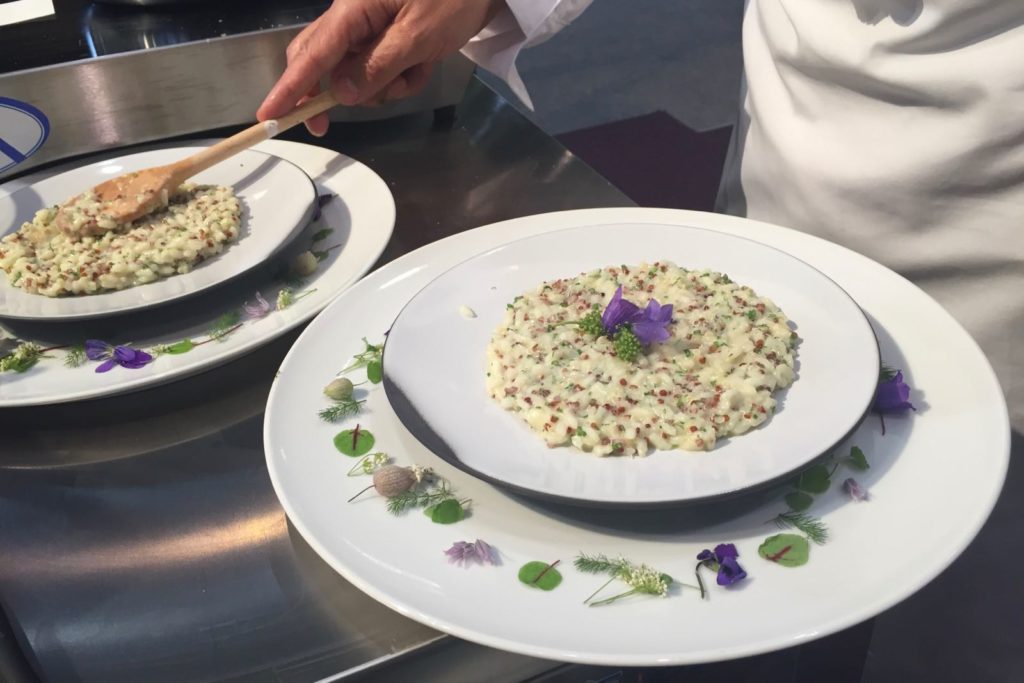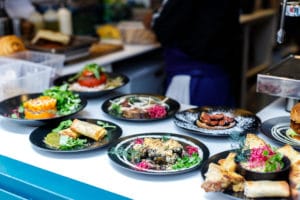Organic, local, plant-based, vegan… these emerging topics reflect the new consumer trends that are shaking up the food industry and food service.
The new eaters
In France, 80% of Millennials prefer local products. Among them, some declare themselves vegetarians and others are interested in plant-based dishes in restaurants. The new generation of French consumers is therefore already moving the lines with a very strong expectation of veganism.
This movement created on the consumer side is inevitably reflected in the Chefs who have to adapt. A change in behaviour that demonstrates a need for reassurance. Consumers are becoming more and more demanding, attentive to the quality and origin of products. They ask about the restaurant where they are going to eat. They want to know what they are going to eat and why.
The plant experience
The plant movement in the restaurant industry started thirty years ago. So it’s nothing new. The first question that professionals should ask themselves is why the demand for plants is so strong today.
When they go to a restaurant, the new eaters mainly want to have an experience. An experience that is more in line with the changes in society. In this respect, plants embody novelty and the hope of a more responsible future that brings meaning.
Faced with this trend, it is interesting to see how the players in the catering industry are taking up the response and what solutions are being proposed to accompany Chefs in this evolution.
Like VegoResto, which invites traditional restaurateurs to include a plant-based offer on their menu. This initiative is spreading. More than five hundred restaurants have already signed the charter, and customers are delighted to discover plant-based creations that are different from what they are used to eat.
And if today’s plant- based offer still too often reproduces what exists, it is above all to reassure vegan or flexitarian consumers in need of reference points. But a Chef can have fun making new recipes that better highlight his work and his product. To show creativity in inventing new dishes based on plants and to accompany the consumer in eating well in a consistent manner. These are the next challenges for restaurateurs.
The cuisine of tomorrow
Above all, the new eaters are becoming new citizens. They are making more conscious choices by taking responsibility, in a society that is more attentive to animals, health and the planet.
Digitalization has also changed the way consumers look at food. The omnipresence of food pictures on the web has developed a complex relationship with the colours. Dishes must now be “Instagrammable” or they will not be validated by the community. The challenge for Chefs is to find the balance between the visual and gustatory experience.
Through their behaviour, consumers bring a lot of complexity to the restaurateurs. They have already seen everything, so they need to be surprised. To do this, Chefs must break the codes, offer less fixed menus and give customers more freedom. The syllabus of hotel schools must also be reviewed to adjust to current trends.
In the meantime, the generation of young Chefs brings a new breath and a more respectful notion of pleasure. And even if they do not all have the same vision (because it is not only a question of generation), those who believe in it will actively participate in the change and will deeply transform French gastronomy.
The Sirha Green sets the tone and brings a new legitimacy to issues that have been little valued until now. It gives Chefs a place to question themselves and think differently. An opportunity for them to work differently, simply and intelligently.
The green transition is on its way and promises to be sustainable.
Translated by Malvika Kathpal





